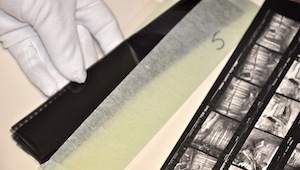The research themes
- Details
- Last Updated: Tuesday, 14 May 2019 14:31

Research undertaken at CREDO is in accord with the contract signed with the State and between its mother institutions (Aix-Marseille University, CNRS and EHESS). The this page présents the main themes that were part of these contracts, called quadriennal if they last four yeras, and quinquennal if the last five years). In all cases, CREDO associates to its research activities its two other missions:
- the development of paper and digital documentation on the Pacific
- the education of students and junior researchers
Quinquennal 2017-2022
For the next contract, CREDO will work on the following themes:
- Axe 1: Emergence, innovation and creativity in the Pacific
- Axe 2: Constructing worlds: knowledge, perceptions, material practicies and relations
- Axe 3: You call this democracy? History and anthropology
- Axe 4: Soveregnities and radicalities : globalized imaginaries and local constructions
Quinquennal 2010-2016

Between 2010 and 2016, the scientific projects of the CREDO were articulated around four axes.
Political constructs and religious dynamics in oceanian societies: issues and perspectives
Coordinator: Marc Tabani
The main aim of research activities relevant to this theme is to focus upon identities, about their underlying political constructions and religious dynamics, within contemporary as well as historical contexts.
Their purpose is to study various transformation processes – social, cultural, artistic, economic, political, religious – that have contributed to define principles of individual or collective ways of belonging, to different social, cultural, linguistic or institutional communities in the Pacific. Ruptures and continuities within collective identification process or the production of cultural diversities should be analysed by the mean of a critical insight while placing them in their specific contexts. To grasp cumulative aspects of growing changes or ideological reappraisal of continuities in social worlds of the Pacific reveals new social and cultural balances engendered by globalization.
Local systems of knowledge: personhood, environment, ritual, and objects
Coordinator: Pascale Bonnemère
The expression « local systems of knowledge » refers here both to knowledge people transmit themselves in an explicit way, like what we used to call ethnosciences, and to others for which oral transmission is only one way among others for accessing to it. This is notably the case of rituals from which people gain knowledge (about gender, personhood and kinship for example) through participation in them.
Three main domains of social life will be dealt with during 2012-2015: 1) relations of people to their environment, notably in Australia where orally transmitted knowledge inside communities mingles with occidental knowledge learned at school; 2) representations of personhood, essentially in Melanesia and Polynesia, where gender and kinship play a major role; and 3) rituals of all kinds, during which people acquire a new status, are intronised in a new charge or have their relations to the deceased transformed.
To analyse such ethnographical data, one must be aware of current theoretical debates and often adopt a comparative or transdisciplinary perspective. This implies, among other things, thinking about what makes a ritual action distinctive, dealing in a critical way with the theory of the “dividual” person or referring both to the anthropology of art and cognitive anthropology in order to better understand the action and efficacy of the objects that are manipulated in rituals.
Epistemology of sources: different modes of data treatment
Coordinator: Anne di Piazza
Since 2009 CREDO has been engaged in a reflection on the documentation of scientific archives and the constitution of tools for digital archiving. The objectives are double:
- perpetuate data stored at present on fragile media and which is of known scientific interest;
- increase the capability of our platforms to manage data in ever increasing volume, variety and complexity so as to constitute a veritable space for scientific research on the SHS corpus and particularly on the Pacific.
Digital technologies affect all aspects of research: documentation, treatment and utilization of information, exchanges within the scientific community as well as the diffusion and sharing of results. They also require the creation and/or utilization of tools that permit digital structuring of the corpus, their analytic description (including statistical met
hods, research engines, semantic clouds, etc.), their diffusion, their sharing and their conservation over the very long term. The laboratory members who participate in this thematic therefore will devote particular attention to modes of data collection, production and archiving of sources, as well as to the nature and role of tacit understanding in the construction and analysis of sources. The corpuses currently being exploited are:
- a photographic archive on the Baruya and Ankave peoples;
- three manuscript archives written by central figures in oceanic anthropological research;
- two mixed corpus that regroup the writings of anthropologists, early voyagers and missionaries;
These corpuses are (or will be) put on line on the ODSAS platform, and will be accompanied by a reflection on the development of an adequate tool for their exploitation.
Quadriennal 2006-2009
Repport of the national agency for the evaluation of research centers of 2006-2009
| Responsable | Unité | Qualité scientifique et production | Rayonnement et attractivité, intégration dans l'environnement | Gouvernance et vie du laboratoire | Stratégie, appréciation du projet | Note globale |
| DOUSSET | Unité | A+ | A+ | A+ | A | A+ |
You may download the report: Rapport Aeres 2006-2009.




